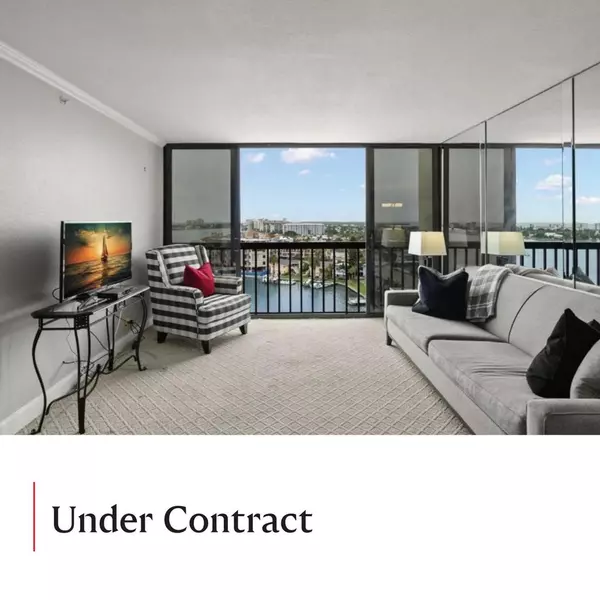MOST RECENT BLOGS
Why Everyone is Moving to St. Pete in 2025

In recent years, St. Petersburg, Florida, has become one of the most sought-after cities in the United States. As we step into 2025, the appeal of this Sunshine City continues to grow, drawing in new residents from all over the country. So, what makes St. Pete such a magnet for movers? Let’s explore
Read MoreWhat You NEED to Know Before Moving to St. Pete

St. Petersburg, affectionately known as St. Pete, is a slice of paradise on Florida’s Gulf Coast. With its perfect blend of urban charm and coastal living, it’s no wonder so many people are flocking here. But before you pack your bags, here are some essential things you need to know about life in th
Read MoreMy Top 5 Beaches to Visit in the St. Pete / Tampa Area

Top 5 Beaches to Visit in the St. Pete / Tampa Area The St. Pete / Tampa area is a slice of paradise, offering pristine beaches, breathtaking sunsets, and endless activities for all ages. Whether you’re planning a relaxing day by the water, an adventurous outing, or even dreaming of living near th
Read MoreTampa Bay Experiences Rapid Growth in Build-to-Rent Homes Over Last Five Years

Over the last five years, Tampa Bay has emerged as a leading destination for build-to-rent (BTR) homes, reaching its peak success last year. Across the U.S., 32 metropolitan areas have completed their BTR inventories over the past five years, yet more than half currently have no new projects in the
Read MoreUnveiling the Success Story: 255 Dolphin Way!

At the heart of real estate lies the captivating tale of properties that quickly capture the imagination and hearts of eager buyers. This narrative often intertwines with exceptional marketing efforts, sparking a swift and exciting journey toward a successful sale. At the Leisa Erickson Group, we re
Read More5 Things You Didn't Think You Need To Ask About Before Buying A House

Need to dig deeper into the home you're looking to buy? Asking the right questions — and not just the kind that randomly pops into your head — can help you get as much information as you need to put together a competitive offer. Likewise, you will be able to save time, money, and potential headaches
Read MoreHonoring All Who Served and The Many Advantages of VA Loans

Thank you, dear veterans, for your valor, strength, service, and dedication to protect us and keep us safe. Veterans sacrifice a lot to protect the country. And one way to show appreciation to them and their families is to make sure they know about the mortgage loan that's available to them: the V
Read MoreUnderstanding Seller Concessions: What Are They and How Do They Work?

Whether you're a buyer looking for your first home or a seller preparing to put your property on the market, you’ve probably heard the term “concessions” in real estate. But what exactly does that refer to? Seller concessions, which are also called seller assist or seller contributions, are the co
Read MoreWhat Home Buyers Should Know About HOAs

You've only just started your house-hunting journey and learned that a house you’re interested in is located in a neighborhood with an HOA. You might have heard them before, but you might still be wondering, what is an HOA? More precisely, what does it do and how does it affect your home-buying deci
Read MoreHere's Why You Shouldn’t Max Out Your Budget When Buying A Home

When it comes to purchasing a home, it's easy to get caught up in the excitement of finding your dream property. However, it's important to consider the potential drawbacks of maxing out your budget for this significant investment. By buying a home that is within your means, you can maintain financi
Read MoreReal Estate 101: What Is The Difference Between Short Sales and Foreclosures?

For homeowners who fall behind on their mortgage payments, mainly due to a sudden financial crisis, such as unemployment and other income loss, unexpected debts, interest rate hikes, or economic downturn, among others — the two main options available are either a short sale or foreclosure. In both
Read More3 Huge Reasons To Talk To A Mortgage Lender Before You Start House-Hunting

Have you been browsing homes online, dreaming about the day when you can finally have a place you can call your own? But the thing is, you think you're not quite ready to buy anytime soon, especially if you haven’t saved up as much money for a down payment as you’d like. Even if you're still a few
Read More5 Common Mistakes First-Time Homeowners Make After Moving In

The euphoria that comes with purchasing and moving into your first home is unlike no other. You will soon be able to personalize your bedroom, cook in your dream kitchen, or create your version of a backyard oasis. But oftentimes, the excitement can get the better of you. And while you have every r
Read More5 Crucial Things You Shouldn't Lie About When Applying For A Mortgage

When it comes to applying for a mortgage, remember that there's no such thing as a little “white lie.” Saying fibs that you think are harmless, as well as exaggerating, playing down, or failing to disclose certain information, can all jeopardize your chances of getting approved for a loan. Unfortuna
Read MoreThinking of Buying A New Construction Home? Here Are 7 Common Myths You Shouldn't Believe

House-hunting is no easy journey, especially once you find that there's a limited inventory of previously-owned homes in the housing market. If you’re a first-time home buyer, you might find that a new construction house is one of your viable options to finally achieve your homeownership dream. Acc
Read More-
![When A House Becomes A Home You Love: The Emotional and Non-Financial Benefits of Homeownership [INFOGRAPHIC],Lesia Erickson Group](https://images.squarespace-cdn.com/content/v1/623a222fd542dd0d80d85927/1676398729495-9OVJYW7EKLA1EAI47IB9/unknown.jpg)
When you started your home buying journey, you might have only considered the financial perks that homeownership could give, including a more stable monthly housing costs and building equity. But when you think about it, it's love that drives you to provide a safe and comfortable environment for you
Read More What is the Multiple Listing Service? A Basic Guide For Buyers and Sellers

Whether you're embarking on your first house-hunting journey or it’s time to sell your beloved home, one thing is certain: you’re likely to encounter the term MLS, which stands for Multiple Listing Service. But exactly is it? Even though the real estate industry is highly competitive, the business i
Read More6 New Year's Resolutions To Help You Buy Your First Home

With the new year comes new milestones to reach. And if this year you'd want to go beyond the usual promises to focus on your health and wellness, read more, and finally achieve a grand dream like buying your first house, remember that preparation is key. Here are six practical resolutions for you
Read MoreWhat You Should Know If You're Buying A Home in A Flood-Prone Area

You have been in the market for a while now searching for your forever home. You thought that none of the homes suit you right now. Until you see this listing: a charming four-bedroom abode with a huge backyard ideal for your family, near a bustling neighborhood, and well within your price range. It
Read MoreWhat Is a Single-Family Home? Here's A Look Inside This More Popular Type of Dwelling

When we were still kids, chances are we sketched our dream home as a square building with a rectangular door, a few windows, a triangle roof with a chimney, and a large yard with flowers and trees enclosed by a white fence. But when you enter the housing market as a prospective homeowner, you will
Read More
Categories
Recent Posts











